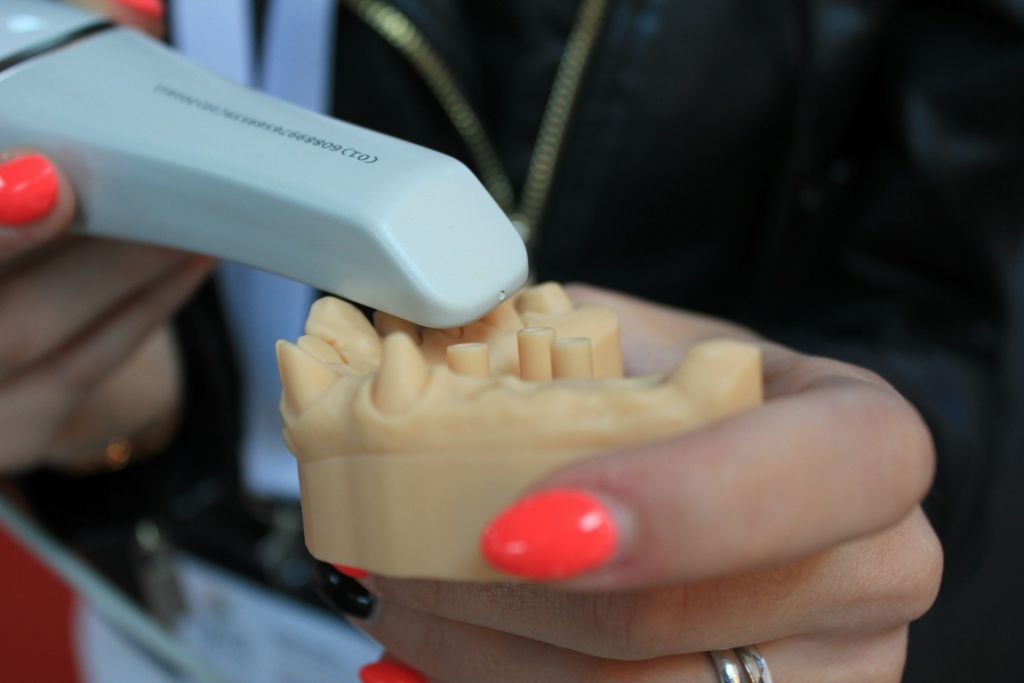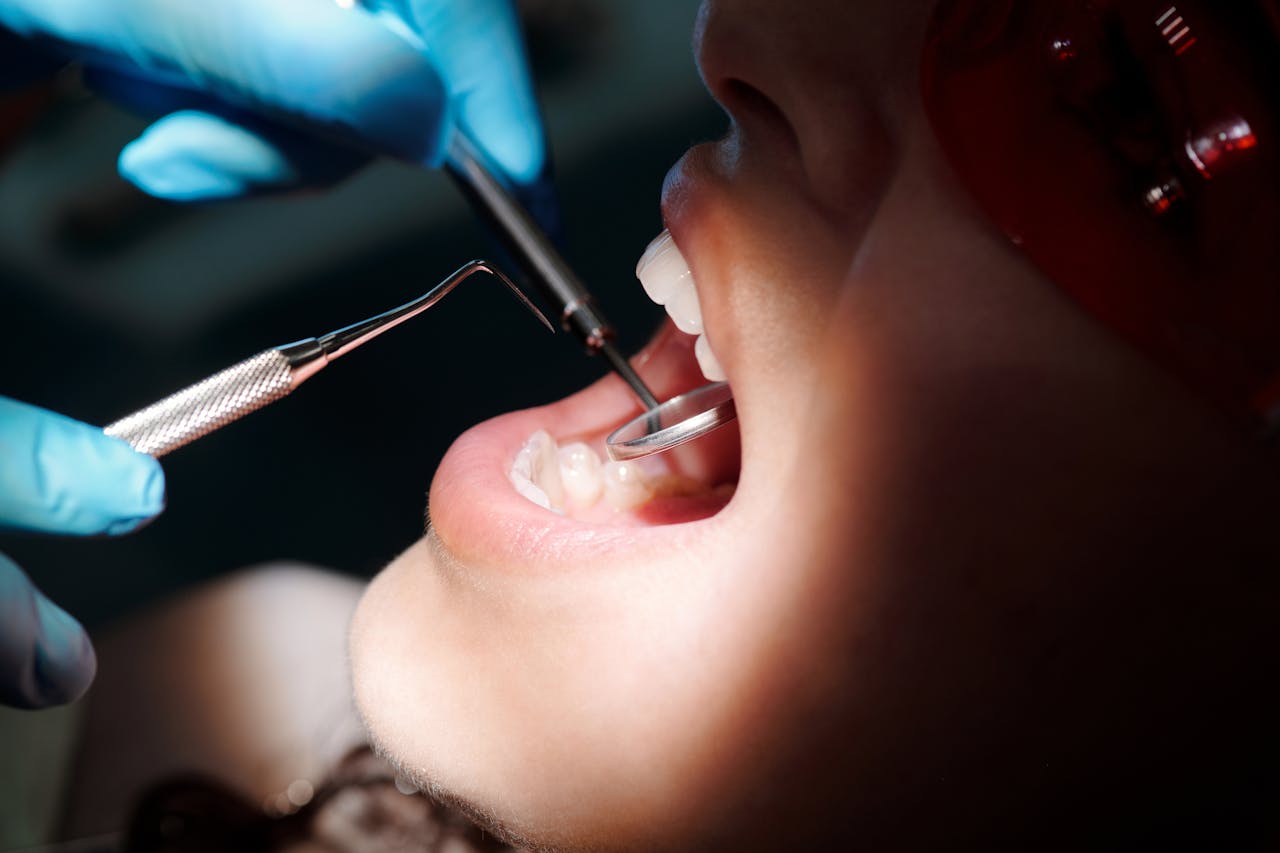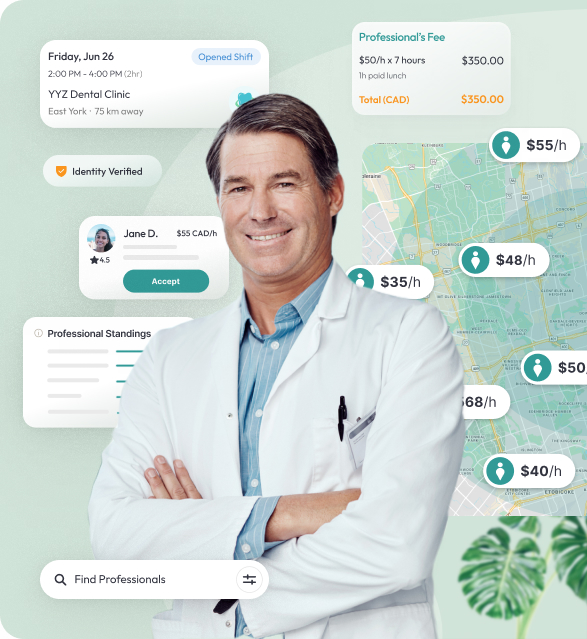Dental Industry Overview: Trends and Insights
A survey shows that over 40% of rural Canadians lack dental health insurance compared to 33% of urban Canadians. This survey highlights the disparity between access to quality healthcare. It also explains why the need for remote dental jobs arises in Canada. So, let’s look deeply into what types of remote dental jobs in Canada are available for you.
In simple words, remote dental positions refer to employment opportunities in the oral health & wellness industry where you work from home or in other remote settings. Since COVID, lots of dentists have realized the importance of remote work in dentistry.
So, you should start looking for dental jobs remotework opportunities since opportunities like that are appearing on the Canadian job market very frequently.

Types of Dental Remote Jobs
First, let’s explain what sort of remote dental jobs are available for you:
Teledentistry Practitioners
Teledentistry involves dentists working remotely to provide dental consultations to patients. A remote dentist allows patients to get dental health treatment without making in-person visits. In 2020, around 50% of Ontario-based dentists used teledentistry because of the pandemic. So, the benefits of tele-dentistry for patients are beyond measure!
Remote Dental Billing and Coding Specialists
These specialists handle the financing aspects of running a clinic from a distance. They’ll work with insurance claims, verify patient coverage, maximize reimbursements, and ensure accuracy in billing & coding.
Virtual Dental Assistants and Administrative Roles
A virtual dental assistant will schedule appointments, manage patient records, be a bridge between patients & doctors trying to communicate with each other, and essentially provide all sorts of virtual dental office support to dental health professionals – everything is done from home.
Dental Content Creation and Education
These professionals will develop educational materials, articles, blogs, videos, and resources to inform patients about oral healthcare. They may create content for websites, social media, or educational programs that promote best practices in dentistry.
Advantages of Remote Dental Jobs
A recent survey claims that 3 in 10 Alberta residents don’t regularly visit their dentist because of how busy their work schedules are (residents’ work schedules!). But dental remote jobs can help dental health professionals become easily accessible to laypeople. Let’s focus on the pros of being part of telehealth dentistry in Canada:
Flexibility and Work-Life Balance
Many Canadian dentists suffer from stress, anxiety, burnout, and depression. However, work-life balance in remote dental jobs can alleviate these conditions. That’s because dentists can:
- Set their schedules
- Allocate time for family and hobbies
- Balance work commitments with personal life
- Get rid of daily commute to save time and reduce stress
Access to a Broader Job Market
Imagine applying to remote orthodontic jobs in Vancouver while sitting in your Quebec home. Remote dentistry allows professionals from all over the country to apply for jobs without having to worry about geographical limitations. This way, candidates can find work in areas with higher demand for qualified oral health professionals or better compensation.
Cost Savings for Professionals and Practices
Remote dental jobs also eliminate commuting costs (as mentioned above). If you’re running a dental practice, hiring remote staff will lower your clinic’s overhead costs. You can maintain the office space cost-effectively. Also, efficient budgeting will allow you to allocate more funds to acquiring advanced dental care equipment.
Enhanced Patient Access to Care
Services like online dental consultations can help you provide the best caregiving to patients. In rural and underserved areas, patients can receive timely consultations and follow-ups without having to travel hundreds of miles to reach the nearest dentist.
This increased accessibility not only enhances patient satisfaction but also helps in addressing oral health disparities across different communities.

Challenges of Remote Dental Jobs
While some people believe that remote work is the future of dentistry in Canada, others don’t have a good opinion about it. So, let’s explore some challenges of remote dentistry faced by a lot of oral health experts.
Technological Requirements and Limitations
In telehealth dentistry, doctors often use the tech tools needed for advanced oral caregiving. Also, poor internet connectivity can hamper your diagnosis. Not all dental practitioners may have access to the necessary equipment or the technical skills to operate telehealth platforms.
Maintaining Patient Confidentiality and Data Security
Even though online dental consultations are cost-effective and very fast, patients may have a few legitimate concerns about data misuse. Recently, hackers leaked the medical information of 7,000 Saskatchewan residents, causing discomfort among patients who won’t be okay with a dental health professional accessing their medical records remotely.
Dental professionals need to comply with regulations such as HIPAA and PIPEDA, which can be complex and require ongoing training to manage effectively. Any breach of data security might lead to serious legal ramifications and loss of patient trust.
Limited Scope of Practice in Virtual Settings
Work-from-home dental jobs sound like a dream. But these jobs prevent you from performing many important medical procedures that require you to be physically present at the location. After all, you can’t do a root canal while sitting at your home, right? When in-person diagnoses or patient evaluations become necessary, remote work just isn’t enough!
Professional Isolation and Reduced Hands-On Experience
Remote jobs can make you feel isolated. You will miss interacting with your colleagues as well as patients in person. This isolation may also hinder collaboration, mentorship opportunities, professional development, experience gaining, and network boosting that typically occur in a traditional dental practice environment.

Legal and Regulatory Considerations
“In the Canadian context of universal coverage for medical (but not dentistry) services, the oral health workforce was found to be demarcated by considerable geographic and gendered imbalances.” – Source.
While remote dental jobs are quite beneficial, you need to be mindful of the legal requirements of these work-from-home professions. That’s what we’ll discuss briefly in this section.
Licensing and Jurisdictional Issues
As a dental professional, you have to get a license from a regulatory body in your province to practice legally. If you’re licensed in one jurisdiction and want to get a remote job somewhere else, then you may not be able to practice legally without attaining the right credentials. That’s especially true when you’re busy in dental recruitment and wish to hire remote talent; keep in mind that you have to check for your temporary workers’ licenses and certifications.
Compliance with Health Regulations
Don’t forget to comply with healthcare regulations in that given province as well. Even when it comes to remote dental jobs, it’s your responsibility to ensure that your telehealth practices align with these healthcare regulations. For instance, patient confidentiality regulations are still applicable.
Future Trends in Remote Dental Employment
Imagine hiring a remote dental hygienist for your practice. Normally, this dental health expert will cost you between $32 and $50 an hour (in Ontario). On average, dental hygienists are paid at a rate of $47 per hour! However, you can hire remote workers for a smaller salary. That’s why remote dental occupations are trending right now!
Let’s explore some amazing trends in remote dentistry, especially the trends that are essential from an employer’s perspective.
Technological Advancements Shaping Remote Dentistry
The dentistry niche relies on tech solutions like AI, ML, 3D printing, digital imaging, etc., to transform remote dental practices. This way, oral health experts can reduce the diagnosis error rate and provide efficient treatment options to patients.
Potential Growth Areas and Opportunities
A healthcare organization in British Columbia provided helicopter dentistry to remote parts of Canada so rural communities could have easy access to oral caregiving. This growing demand for dentists in remote areas is a great opportunity for dentists to tap into remote roles as well as virtual consultations.
Additionally, the aging population and increased public awareness of oral health are likely to drive job growth in specialized areas such as orthodontics and pediatric dentistry.

Is Remote Dental Work Right for You? Key Takeaways
In the end, you must weigh the pros and cons of remote dental jobs in Canada before applying for one. Always make informed decisions about remote dental careers & get in touch with the folks in the know when you want to hire dental health workers. Many credible dental hiring agencies operate in Canada, and they can connect you with qualified professionals.
Explore dental staffing solutions to streamline your practice and tap into the world of dental jobs remote when traditional hiring means fail to deliver optimal results.




